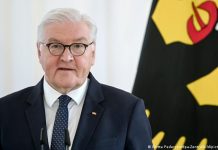Pakistan and Iran have reaffirmed their commitment to achieve a $10 billion bilateral trade target, as the 22nd Session of the Pakistan-Iran Joint Economic Commission (JEC) concluded in Tehran with the signing of key protocols covering multiple sectors.
The Pakistani delegation was led by Federal Minister for Commerce Jam Kamal Khan, while Iran’s Minister for Roads and Urban Development Farzaneh Sadeq headed the Iranian side.
Technical teams from both countries finalised a comprehensive protocol following extensive discussions.
The session reviewed bilateral relations and agreed on a strong framework for future cooperation in trade, investment, energy, agriculture, transport, health, education, and cultural exchanges. Both ministers signed the protocols at the closing ceremony.
Key outcomes included the removal of tariff and non-tariff barriers, operationalization of border markets, promotion of business-to-business linkages, and enhanced electricity trade. The two sides agreed to resume work on a 220 KV transmission line to Gwadar and explore renewable energy projects. A joint working group will also promote investment in the power sector.
In agriculture and environment, both countries pledged to implement agreements on veterinary health, pest control, agricultural equipment, and joint strategies to tackle climate challenges, including dust storms and mangrove preservation.
Transport and connectivity remained central, with plans to increase rail cargo, expand air navigation services, and explore ferry operations for passengers, including Zaireen. Agreements also covered health cooperation, labour mobility, counter-narcotics efforts, and streamlined visa processes for businessmen and drivers.
On the sidelines, a Joint Business Forum on September 15 brought together leading companies from both countries to explore new avenues of cooperation and complement governmental efforts.
Minister Jam Kamal expressed satisfaction at the successful conclusion, noting that the protocols provided a “clear roadmap for future cooperation.” He underlined the importance of people-to-people linkages and joint efforts on climate change, water management, and counter-narcotics.
Iranian Minister Farzaneh Sadeq welcomed the outcomes, stressing Iran’s commitment to trade expansion, infrastructure development, and regional connectivity. She praised the professionalism of both delegations and said the JEC had proven vital in translating shared vision into tangible results.
The 23rd session of the Pakistan–Iran JEC will be hosted in Islamabad.



























































